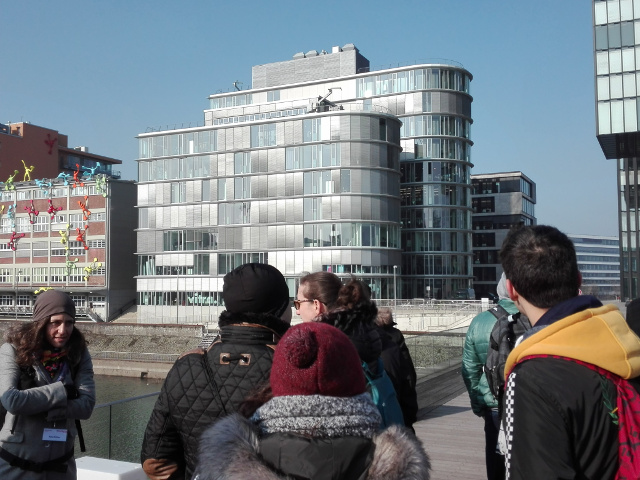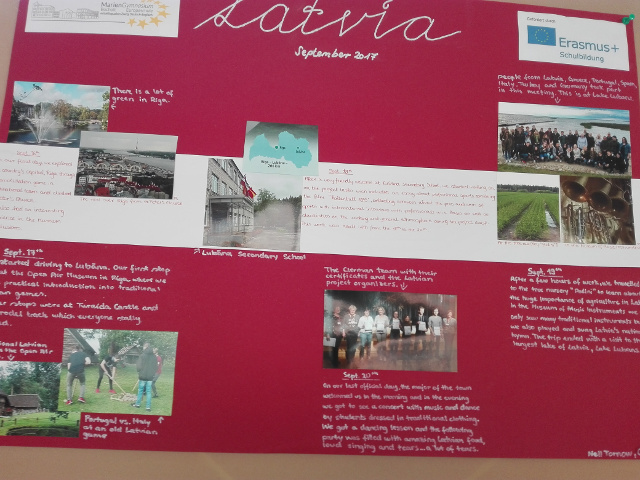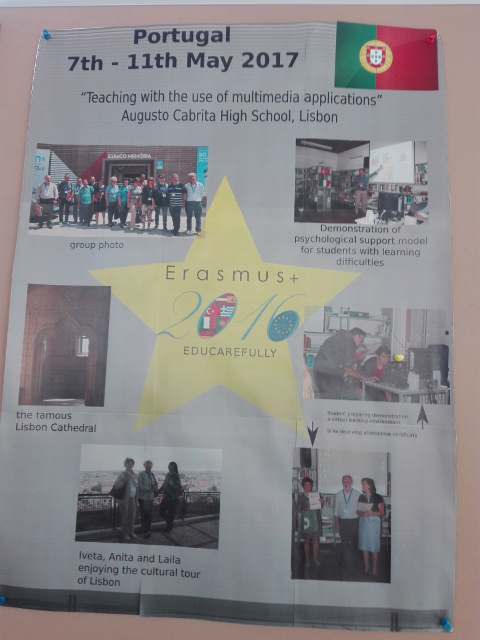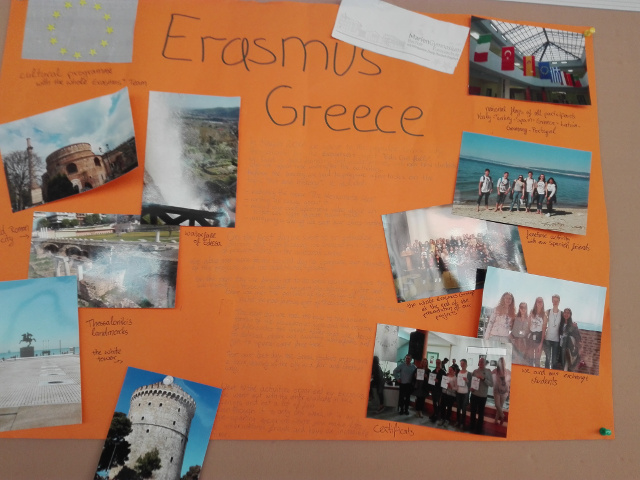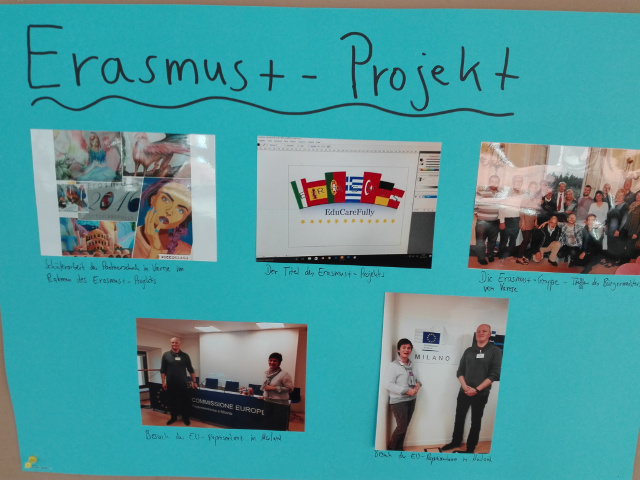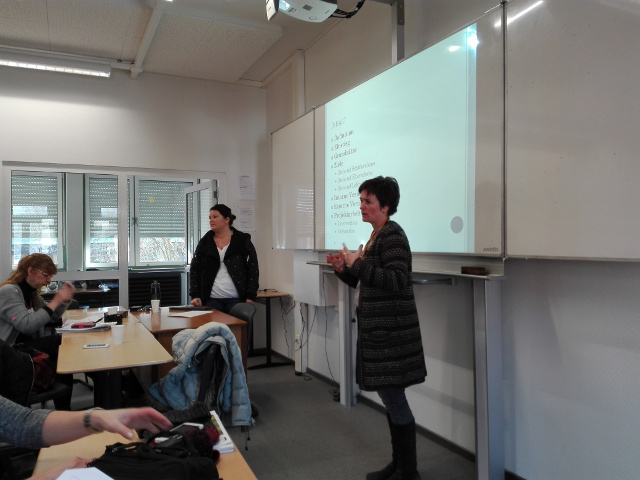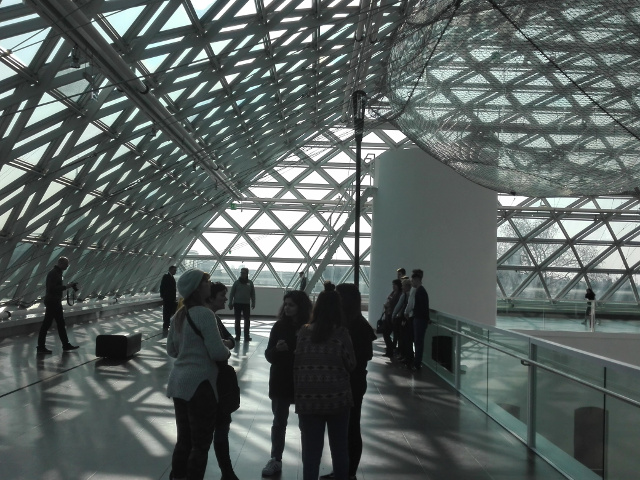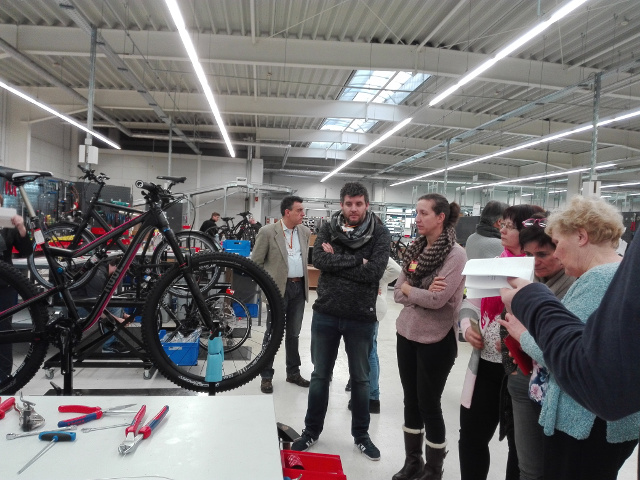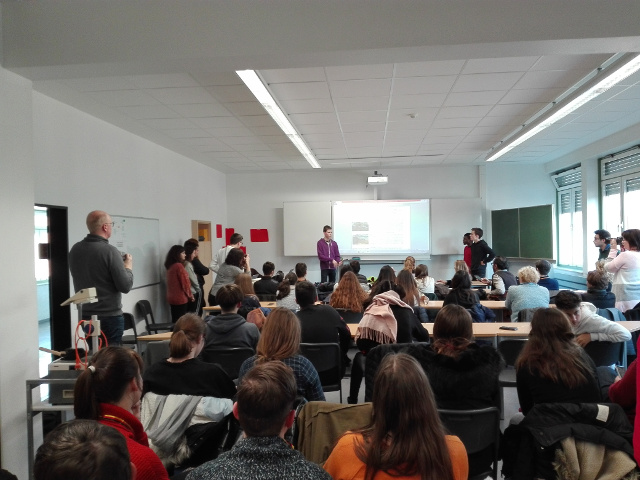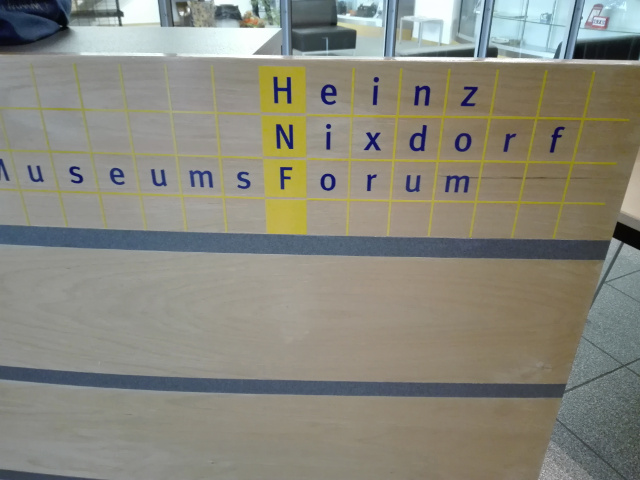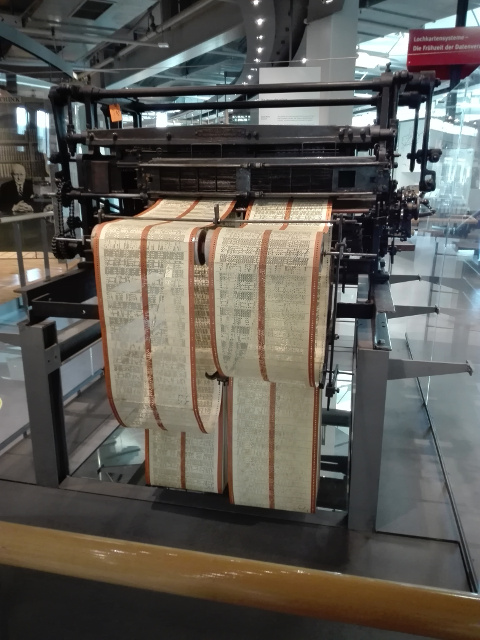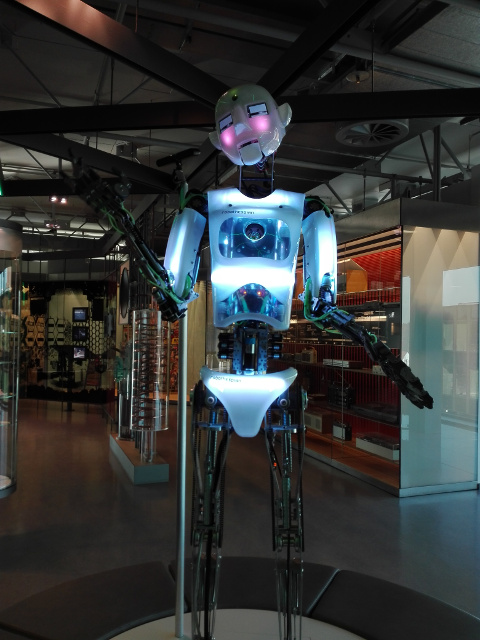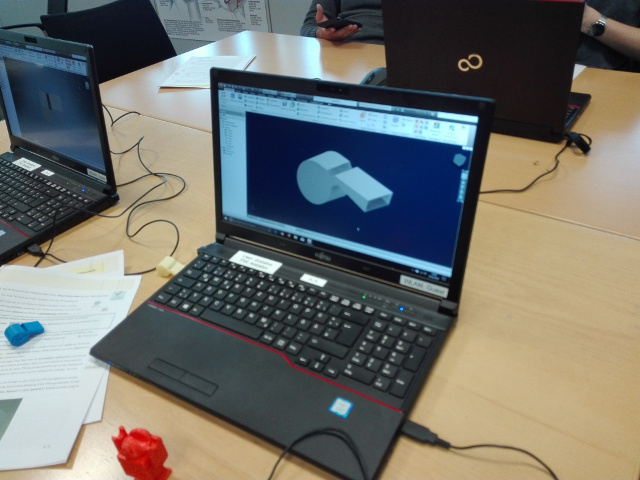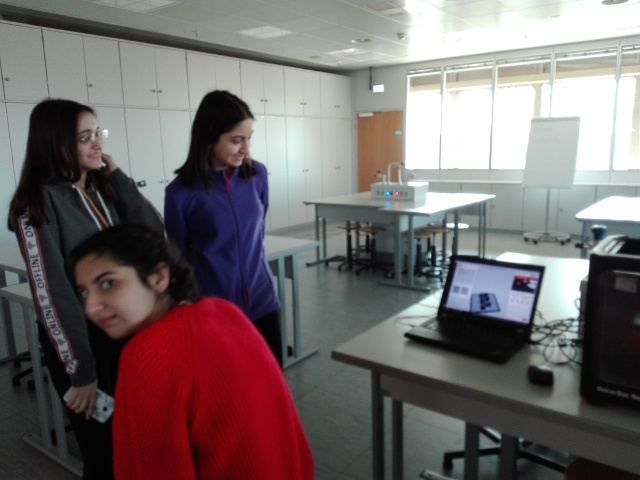Work Activities in the German Erasmus+ Meeting for the Goals of the project EduCareFully
Economy and Marketing / exchanges of best practices of learning and teaching methods (coop work of German students and teachers involved)
Monday, 19th Feb. 2018
European Students: On our first day together in Bocholt, Germany, our student guests visited our school and attended lessons together with us. We went to the Erasmus+ Corner in our school to watch the posters about the previous meetings and to inform the students not directly involved in the other meetings about the programme and work results.
In the lessons we exchanged experiences in different subjects and talked about the similarities and differences in lessons and schools. After that all the teams were welcomed by the headmaster of our school and afterwards by the deputy mayor of Bocholt in the town hall.
In the afternoon we formed multinational teams and presented our national products we had prepared for the meeting on the topic business world and marketing in Europe. These were the essays on Soul Kitchen ( a film on a business career of a migrant), the computer- based surveys on how advertisements appeal to the young generation, the generation of the parents and the grandparents. And last on the videos which were recorded interviews of business people from the participating European countries.
European Teachers: We spent the morning with the students. In the afternoon we attended seminars for an exchange of best practices concerning teaching, learning, and promoting students individually. One lecture was held by two students of Mariengymnasium Bocholt who are supervisors in the Noontime Supervision Department for younger students who spent afternoons at school and are supported with their school work, social activities and in their special needs. Another one dealt with methods of teaching local economics and marketing in Social sciences at our school. After each presentation we exchanged experiences with all European colleagues.
Tuesday, 20th Feb. 2018
Teachers and students met at the local Textile Museum to attend activities centering around digitalization of the world of work. Participants had to use an app in order to find out what type of business person would fit in with their personalities and were introduced to a by-gone time of office work without any digital tools like telephone and computers. At the end of the morning a work report was given by a business person, who talked to students and teachers about his work as a global player in the production and distribution of beds, and bedding items. This person ́s career is a lively proof of how companies from rural areas can play a role in global business and of the importance to be prepared for a European world of work.
The afternoon was dedicated to the multinational students workshops again and for the teachers to further seminars of how students with special needs (Inclusion) are integrated into regular schools to lead them to individual social and school subject learning in Bocholt and the other participants ́ schools all over Europe. Another seminar dealt with different European experiences and methods of how to guide the careers of young students in European during and after their school years and of how to achieve a smooth transition from school to work life.
Wednesday, 21st Feb. 2018
This day was an education day outside school for both students and teachers. We went to Düsseldorf where we attended guided tours around the media harbor, a place of economic and cultural structural changes. Once an active warehouse district it has become a quarter for service companies and arts events and a place of modern industrial architecture. The teams got to know that the world of work is subject to immense changes. As a consequence, both teachers and learners have to develop skills and competences which enable them to react flexibly.
On the famous fashion street Kö-Allee the students had a competition, where they got insights into the world of consumerism.
The disadvantages of consumerism were the topic of our visit to an exhibition in the museum “Ständehaus” by the artist Tomas Sarazeno. His installation “in orbit” is meant to critically point at the risks of making parts of the world uninhabitable by pollution, one of the dark sides of consumerism.
Thursday, 22nd Feb. 2018
We visited the company “Rose – biketown” as an example of a local company that has developed from a small family enterprise into an important player in e-commerce as a European exporter of individually assembled sport bikes and bike parts. We got insights into the assembling process and different work places and their respective educational qualifications.
The rest of the day was spent on preparing the final European workshop results and presenting them to the school community. Different groups of students analysed the work products that the national teams had prepared before the meetings and prepared a shared European products, one each on the videos, surveys and essays (cf. Monday programme).
Additionally, there were more lectures and seminars of exchange for the teachers on how our social worker, Mrs Kleinewegen, supports individuals (students, teachers, parents) and groups of students in their personal development and in times of problems. Another presentation was given on the example of promoting students by offering bilingual lessons and school-leaving qualifications as an opportunity for individual career planning in a European and globalized present and future world.
Friday, 23 rd Feb. 2018
That day we went on a trip to Paderborn where the world ́s biggest computer museum (Heinz Nixdorf Museumsforum) is located. All teams visited the permanent exhibition on the world of digitalization and computers.
The students then took part in workshop programmes on robotics, built their own Lego robots which competed in different skills and worked in the student lab on 3D print applications. The students were enabled to apply equipment not available at schools. Especially for the involved IT teachers this day offered a vast range of impulses for IT lessons.

